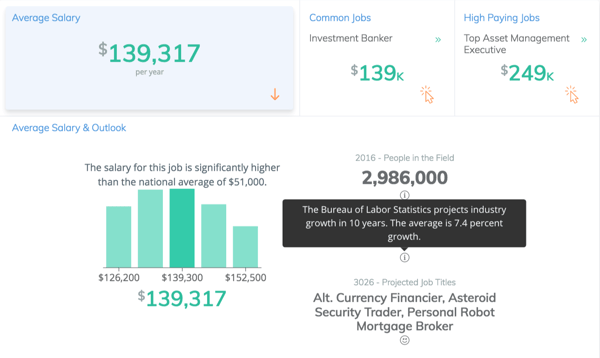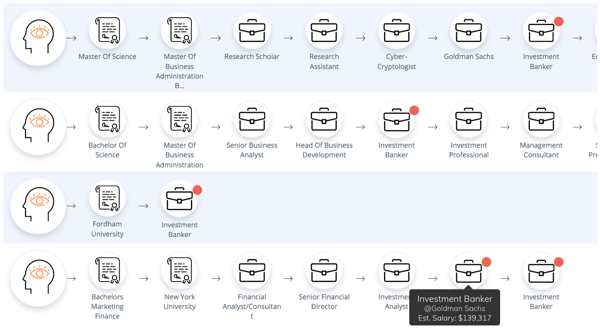Differentiate yourself. Don’t be afraid of failure. Work harder than everybody else. Be yourself. Sound familiar? We’ve all heard this ordinary advice from the grandmasters, celebrities, successful entrepreneurs and career experts in our job search networks. And there are hundreds of blogs, YouTube videos and advisory services that claim to have the ultimate secret to resume building, job interviewing and choosing the best career path. But what does it really mean when at the end of the day we find ourselves writing a resume just to get a job, and everyone is following the same advice...
87% of job applicants overextend the resume soft skills and job history description to be found by keyword searches and to “differentiate themselves.” So at the end of the day, are resumes fake news?
The job hunt is not a task, it's a strategy.
According to a survey, only 12% of college students were able to name more than five job titles they could pursue with their education. A fewer percentage could name the companies they'd like to work for. Globalization of the job market is causing a shift for entry level positions to be offshored, so how can college graduates and career change seekers compete successfully in the job market if they aren't strategically targeting the positions they're seeking? Or better yet — the positions they don’t even know are out there.
On average, 73% of U.S. college graduates end up working in fields unrelated to their education. While sometimes this is a positive spin as students find their passion through unexpected channels, the cost associated with these shifts can become profoundly expensive. An estimated 85% of college students switch majors, and for each additional year at a four-year school, these students can expect a total of $68,153 in tuition, living expenses and lost wages.
Technology has enabled us to self-learn valuable skills and connect with almost anyone who can influence our career trajectory, so it’s time to stop thinking in terms of just getting a good job and time to start strategizing intelligently.
1. Long term goals are great, but beware of industry shifts.
Jobs are being rapidly replaced by machines and automation. Your 10-year goal may be obsolete by the time you get there, so the more you know about the industry and field you're interested in, the better chances you have to gain relevant experience.
 2. Learn from those who have been where you want to be.
2. Learn from those who have been where you want to be.
In college, we learn about the role of CFO, CTO and many other acronyms conveying power. We're also taught the functions of running big business. All of this theory is important, but guess what, you don't perform surgery on live patients the first day.
If you're interested in a particular industry, start by identifying which job titles, companies and skills are needed to get in. Use tools like the Steppingblocks Career Path Analyzer to visualize career paths of real professionals who’ve met the goals you're trying to reach.

3. Don’t look for a job, let the job find you.
Another piece of advice we can't seem to escape is this: “network, network, network.” This is meaningless unless you network with a purpose. First, identify opportunities you want. Then, locate who has the authority to hire you, who influences them, and how to build relationships with people who matter and can offer direction. (Have you heard of this tool called LinkedIn? You can connect with almost anyone.)
Find a common mission, and offer reciprocal value. Joining nonprofit organizations and helping the community is a great way to both give back and build long-term, mutually beneficial relationships.
4. Keep your education costs lean.
In my professional career, I've met many highly-educated individuals with multiple degrees and advanced designations doing the same job as people with a bachelor’s degree. Digital learning and the ability to access free or inexpensive, high-quality education online has shifted the way we build skills, causing this gap in formal education and job attainment to close.
Access to financial resources has also never been more within reach. Despite this, only 16% of college applicants seek nontraditional ways to pay for college via scholarships or grants. Every year, thousands of dollars are left on the table. Use a tool like the Steppingblocks Scholarships Finder, and find ways to pay for college based on your unique attributes — even duck calling, clowning or prom duck tape competing.
Your traditional education offers a foundation in learning, but for many, it lacks the skills training required to get a job. Would you rather have a six-figure income, no debt and a job you love, or tons of debt and an unstable career path?
When planning your career, don't just fake your way into a job. Build a strategy, and the opportunities will come to you.

%20(1).png)




